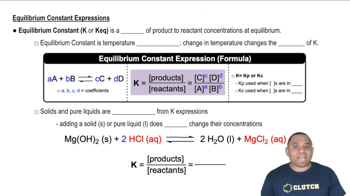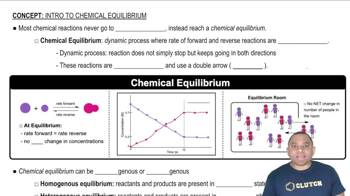Textbook Question
Identify the true statement about the rate of the forward and reverse reaction once a reaction has reached equilibrium. (a) The rate of the forward reaction and the reverse reaction is zero. (b) The rate of the forward reaction is greater than the rate of the reverse reaction. (c) The rate of the reverse reaction is greater than the rate of the forward reaction. (d) The rate of the forward reaction is equal to the rate of the reverse reaction.




